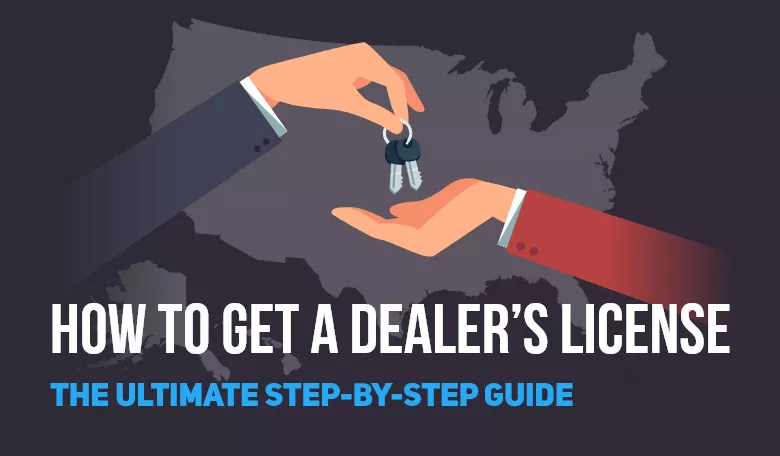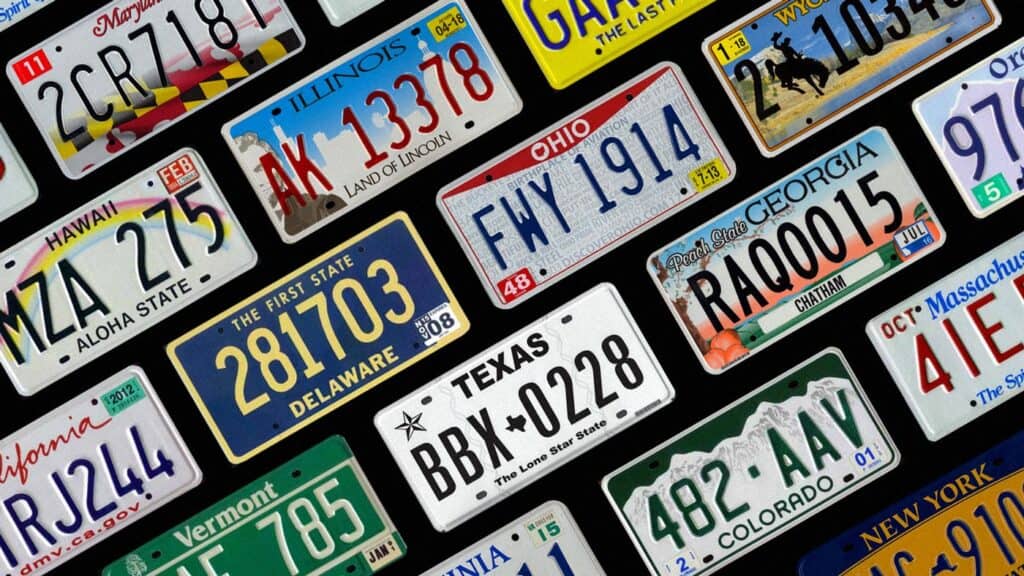Table of Contents
How to Get a Minnesota car Dealer License
Step 1: Establish a Physical Location
Before anything else, ensure that you have the Commercial Location Checklist and meet the necessary requirements:
Requirements include:
- Zoning Approval: Obtain zoning approval from your local zoning authority.
- Commercial Building (New and Used Motor Vehicle Dealers Only): Secure a commercial building that meets state standards.
- Display Area for a Minimum of 5 Vehicles (New and Used Motor Vehicle Dealers Only): Set up an area for displaying at least five vehicles.
- Commercial Office Space (Wholesale and Broker Only): For wholesale and broker licenses, establish commercial office space.
- Easily Legible Signage Identifying the Business (Wholesale Excluded): Ensure your business is clearly identified with easily visible signage.
- Posted Hours of Operations (Wholesale Excluded): Display the hours of operation for your dealership.
Step 2: Obtain an Auto Dealer Bond
To safeguard customers, the Minnesota Department of Public Safety (DPS) mandates that auto dealers obtain a $50,000 auto dealer surety bond. Here’s how to get one:
- Contact a surety bond specialist to acquire the bond.
- The surety will provide you with a copy of the bond, which you’ll include in your DPS application.
- This bond assures compliance with state laws and regulations, ensuring fair business practices and warranty policies for customers.
- The bond premium, typically 1% to 3% of the bond value, varies based on factors like financial status and credit score.
Bond Amount Required:
- $50,000 for most dealers
- $5,000 for boat, snowmobile, small horse trailer, and moped dealers.
Step 3: Obtain Limited Liability Insurance
Limited liability insurance, or general liability insurance, is essential for protecting auto dealerships from various potential claims and legal disputes. This insurance provides coverage for accidents, injuries, property damage, or alleged negligence associated with dealership operations.
Requirements:
- Obtain liability insurance for all vehicles on your lot.
- Minimum liability limits: $30,000 per person / $60,000 per accident / $10,000 property damage.
Step 4: Compile Required Documents
Gather the necessary documents, including:
- Dealer Property Lease Verification Form: Proof of your dealership’s business location.
- Dealer Franchise Agreement: Allows you to use trademarked names and business logos legally.
- Certification of Compliance with Minnesota Worker’s Compensation Law: Determines if your business has employees with adequate insurance coverage.
Step 5: Complete the Dealer License Application
Fill out the application form and assemble all supporting documents.
Fees:
- $100 Administration fee
- $150 Application fee
- $12.00 per motor vehicle
- $14.50 per duplicate plate
- $11.00 per duplicate sticker
Please note that additional filing fees may apply; consult the Dealer Unit for precise fee information.
Mail Your Application to: Minnesota Department of Public Safety Driver and Vehicle Services 445 Minnesota Street St. Paul, MN 55101-5186
By following these steps and ensuring you meet all requirements, you can successfully apply for and obtain a car dealer license in Minnesota. Keep in mind that it’s crucial to stay informed about any updates or changes to the application process and requirements, as regulations may evolve over time.

1. Auction Vehicle Dealer
Description: A licensed motor vehicle auctioneer can sell at auction or advertise and solicit the sale at auction of used motor vehicles belonging to others. However, a license is not required for auctions where motor vehicles are incidental to the disposal of business or estate assets. “Incidental” in this context means up to ten vehicles or no more than ten percent of the items in the posted auction bill.
2. Broker Dealer
Description: Broker dealers arrange the sale or lease of new or used motor vehicles between a buyer/lessee and a seller/lessor. They also advertise and solicit the brokering of motor vehicles, negotiate sale prices or lease terms, prepare transaction documents, and may accept a down payment not exceeding $500. Broker dealers must accompany purchasers or lessees at the time of delivery by the selling dealer and be present when warranties and safety features are described. However, they are not allowed to engage in the sale of new motor vehicles.
3. Lessor
Description: Lessors lease or rent new and used vehicles, and they solicit and advertise the lease or rental of such vehicles. This includes both long-term leasing and short-term rental. Vehicles must be leased for a minimum of 120 days, or sales tax on the vehicle purchase price becomes applicable. A motor vehicle lessor may sell vehicles returned after lease termination or expiration without a used dealer license.
4. Limited Use Vehicles
Description: Limited use dealer licenses are issued to non-profit charitable organizations whose primary purpose is to raise funds through the sale of donated vehicles. These organizations must qualify for tax exemption under Internal Revenue Code 501(c)(3). Under this license, organizations may accept vehicle donations, sell vehicles through a licensed dealer or auctioneer, reassign vehicle titles, and donate vehicles to private parties with a gift affidavit. They do not qualify for dealer plates (demonstration or in-transit plates).
5. New Vehicle Dealer
Description: New vehicle dealers are authorized to sell, wholesale, broker, or auction new motor vehicles covered by their franchise and used motor vehicles of any make. They can also lease all makes of new motor vehicles. If a dealer is not franchised for a particular make, they must lease the vehicle for a minimum of 120 days to avoid sales tax on the vehicle purchase price. New vehicle dealers can broker leases without a separate broker license and operate as a salvage pool, provided they hold a used vehicle parts dealer license as well.
6. Salvage Pool Vehicles
Description: Salvage pool vehicle dealers store and display damaged or junked vehicles for sale as an agent or escrow agent of an insurance company. They can also sell junked vehicles but only to licensed used parts dealers. A used or new motor vehicle dealer can operate as a salvage pool but must also be licensed as a used vehicle parts dealer to acquire a junked vehicle from a salvage pool, insurance company, or its agent.
7. Scrap Metal Dealer
Description: Scrap metal dealers can acquire hulks for the purpose of processing and selling the metal for remelting. However, they cannot acquire junked vehicles for the purpose of dismantling and selling used vehicle parts and remaining scrap metals unless they are also licensed as used vehicle parts dealers. A “hulk” refers to a motor vehicle incapable of moving under its power and transporting persons or property, with any valuable parts removed.
8. Used Parts
Description: Licensed used vehicle parts dealers have the authority to purchase or acquire vehicles for the purpose of dismantling them and selling used parts and remaining scrap metals.
9. Used Vehicle Dealer
Description: Used vehicle dealers can sell, lease, wholesale, broker, or auction used motor vehicles. They can also solicit and advertise the sale, lease, wholesale, and brokering of used motor vehicles. Additionally, used vehicle dealers can buy or acquire vehicles for dismantling and selling used parts and remaining scrap metal. However, a separate used vehicle parts dealer license is required to acquire a junked vehicle from a salvage pool, insurance company, or its agent.
Who must have a dealer license?
In the world of motor vehicles, regulations and licensing play a crucial role in ensuring fair and safe transactions. If you’re involved in certain activities related to motor vehicles, it’s essential to determine whether you need a dealer license. Here’s a breakdown of who must obtain a dealer license:
- Motor Vehicle Sales: If you are engaged in the business of leasing, selling, or arranging the sale of motor vehicles, whether they are brand new or used, a dealer license is a must.
- Volume Sellers: Individuals or entities that have leased or sold more than five vehicles, either wholesale or retail, within a twelve-month period are required to hold a dealer license. This rule applies to both new and used vehicles.
- Used Vehicle Parts and Scrap Metals: If your business involves selling used vehicle parts or processing and selling scrap metals acquired from vehicles, you’ll need a dealer license to operate legally.
- Consignment Sales: For those who conduct consignment sales or arrange sales or leases on behalf of others, holding a dealer license is a legal requirement.


